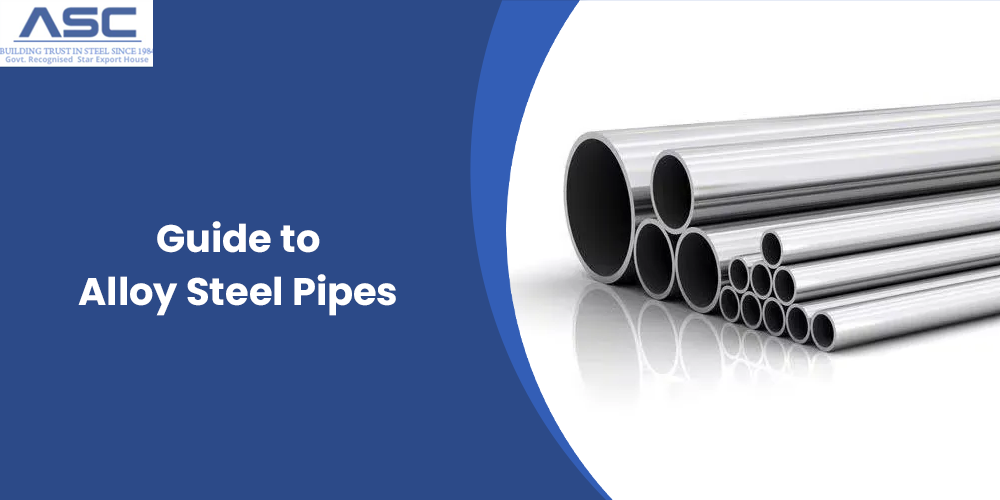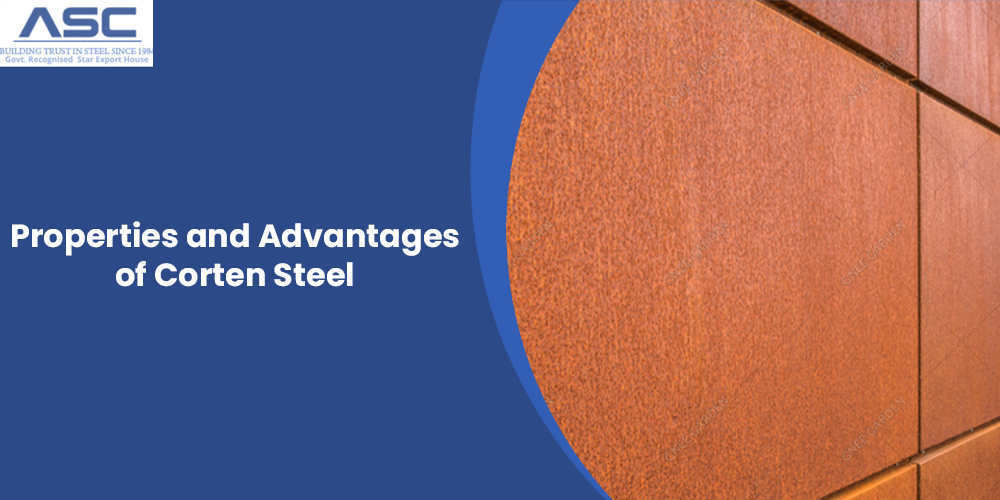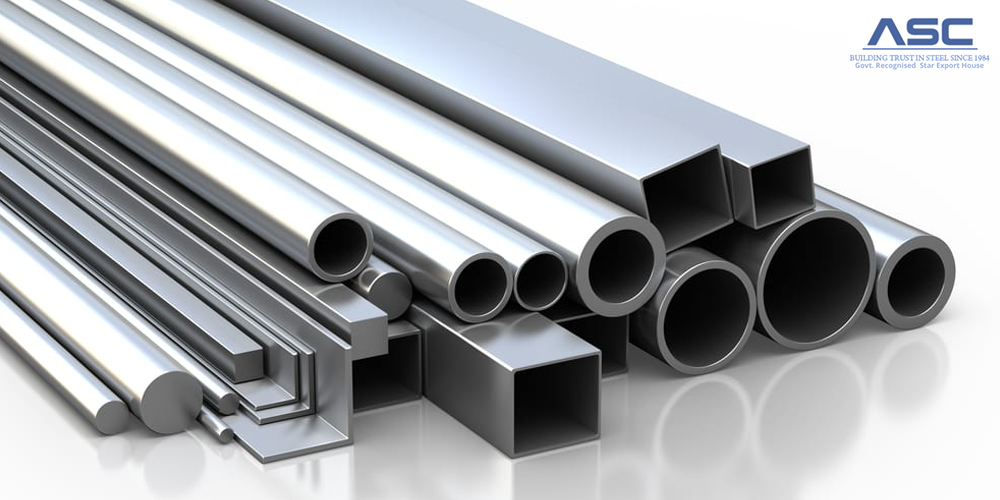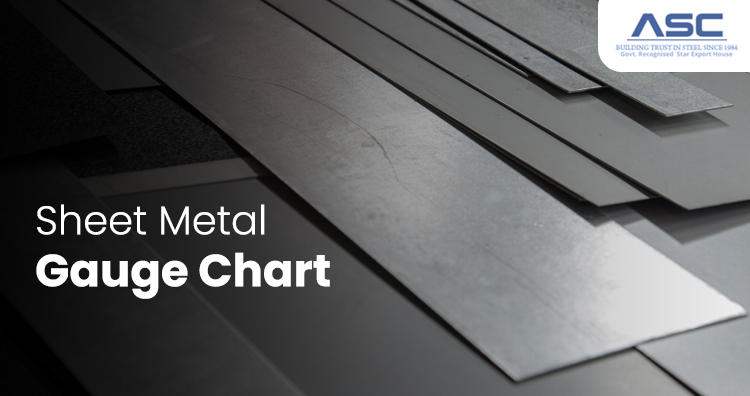Guide to Alloy Steel Pipes and Tubes: Applications, Grades, and Maintenance
by AMC
Posted on December 05, 2023 at 12:07 PM

Are you searching for pipes that excel in high temperatures and pressures? Alloy steel pipes are the superior choice for demanding environments. Made from steel combined with crucial alloying elements such as Chromium (Cr), Manganese (Mn), and Nickel (Ni), these pipes offer unmatched strength, durability, and corrosion resistance. Typically, alloy steel might contain about 1-5% Chromium, 0.3-1.5% Manganese, and 0.2-2% Nickel, though these percentages can vary based on the specific grade and desired properties.
This guide will delve deep into everything you need to know about alloy steel pipes, from their types and applications to the specific grades suitable for various industries. At the forefront of providing these robust solutions is Amardeep Steel, recognized as the premier manufacturer and supplier of alloy steel pipes. Amardeep Steel boasts extensive operations in major markets such as India, the USA, Germany, Poland, Saudi Arabia, the United Arab Emirates, Italy, and the Netherlands. Each of these countries represents a significant consumer of high-quality alloy steel pipes, underscoring Amardeep Steel’s capacity to meet diverse global industrial requirements with precision and reliability.
What are Alloy Steel Pipes?
Alloy steel pipes are made from steel enhanced with alloying elements such as Chromium (Cr), Manganese (Mn), Nickel (Ni), and Silicon (Si). These elements are added to steel to improve its mechanical properties, including strength and corrosion resistance, making the alloy steel exceptionally versatile and suitable for various industrial applications. These pipes come in multiple grades, each tailored to meet specific environmental and mechanical demands.
Types of Alloy Steel Pipes
- Seamless Alloy Steel Pipes: These are manufactured by extruding steel to create a seamless tube, making them ideal for high-pressure applications where uniform strength is crucial across the pipe's entire circumference.
- Welded Alloy Steel Pipes: Made by welding together pieces of steel, these pipes are more economical and typically used in environments where pressures are lower.
Amardeep Steel, a leader in steel manufacturing, excels in producing both types of alloy steel pipes, ensuring high quality that meets global industrial standards. Whether for critical applications in the oil and gas industry or for transportation of liquids in the chemical sector, Amardeep Steel's alloy pipes offer reliability and durability, making them a top choice for industries around the world. With a robust supply chain and advanced manufacturing capabilities, Amardeep Steel stands out as a premier supplier, continually adapting to meet the needs of an evolving market.
Applications of Alloy Steel Pipes
Alloy steel pipes play a crucial role in industries that demand high strength and resistance to harsh conditions. Key applications include:
- Oil and Gas Industry: In the demanding oil and gas sector, alloy steel pipes are essential for drilling and transporting oil and gas. Their high strength and corrosion resistance make them ideal for the deep-earth conditions and corrosive substances they encounter. These pipes can handle the high pressures and temperatures found in oil wells, ensuring safe and efficient fluid transport.
- Chemical Processing Plants: Alloy steel pipes are vital in chemical processing where they transport corrosive fluids and gases. Their enhanced resistance to chemical attack prevents premature wear and leaks, which could be catastrophic in this environment.
- Power Generation: In power plants, alloy steel pipes play a critical role in moving steam and hot fluids. Their ability to handle high temperatures and pressures without deforming makes them crucial for the efficiency and safety of power generation systems.
- Aerospace Applications: The aerospace industry relies on alloy steel pipes for systems that require robust performance under extreme conditions. Their high tensile strength and toughness protect against the mechanical stresses and environmental challenges of aerospace applications.
- Heat Exchangers and Boilers: These applications benefit significantly from the thermal resistance of alloy steel pipes. They are used in settings where high temperature and pressure resistance is essential, such as in boilers and heat exchangers, helping to maintain system integrity and operational reliability.
Grades of Alloy Steel Pipes
Alloy steel pipes come in various grades, each suited to specific applications based on their mechanical properties and resistance levels. Understanding these grades is essential for procurement managers to select the most appropriate materials for their projects. Below is a detailed table summarizing key grades of alloy steel pipes and their typical uses
| Grade | Specification | Tensile Strength | Yield Strength | Corrosion Resistance | Typical Applications |
|---|---|---|---|---|---|
| ASTM A335 | Standard for seamless ferritic alloy-steel pipe for high-temp service. | High | High | Moderate | Used in power plants and petrochemical industries for high-temperature services such as steam piping. |
| P5 | Part of ASTM A335; 5% Chromium and 0.5% Molybdenum. | Very High | High | High | Ideal for oil and gas industry, particularly in refineries and high-temperature environments. |
| P9 | Part of ASTM A335; 9% Chromium and 1% Molybdenum. | Very High | High | Very High | Suitable for thermally severe applications and high-pressure steam lines. |
| P11 | Part of ASTM A335; 1.25% Chromium and 0.5% Molybdenum. | High | Moderate | High | Commonly used in power plants and industrial boilers. |
| P22 | Part of ASTM A335; 2.25% Chromium and 1% Molybdenum. | High | High | Superior | Perfect for high-pressure applications at moderate temperatures, including reactors and heat exchangers. |
| P91 | Part of ASTM A335; 9% Chromium and 1% Molybdenum. | Highest | Highest | Excellent | Employed in supercritical steam applications and high-temperature service environments |
Maintaining Alloy Steel Pipes for Optimal Performance
The longevity and performance of alloy steel pipes can be significantly enhanced through proper maintenance practices. Ensuring the durability of these pipes involves several critical steps:
- Regular Inspections: It's essential to conduct regular inspections to detect early signs of corrosion or damage. This proactive approach helps in addressing potential issues before they escalate, thereby extending the lifespan of the pipes.
- Routine Cleaning: Regular cleaning is crucial to prevent build-ups of deposits and residues that can lead to corrosion. This step is particularly important in industries like oil and gas, where the pipes are exposed to various corrosive substances.
- Protective Coatings and Cathodic Protection: Applying protective coatings and implementing cathodic protection are effective methods to shield alloy steel pipes from environmental damage. These treatments provide a barrier against corrosive elements, thus enhancing the pipes’ resistance to degradation.
Installation Tips for Alloy Steel Pipes
Proper installation is paramount for the optimal performance of alloy steel pipes. Key considerations include:
- Selecting Appropriate Fittings and Flanges: It's vital to ensure compatibility with the type of alloy pipe used. Using the right fittings enhances the integrity of the pipe system, ensuring efficient and safe operations.
- Employing Correct Welding Techniques: Utilizing industry-standard welding methods ensures durable joints and maintains the structural integrity of the pipeline. This step is crucial for applications involving high pressures and temperatures.
- Hiring Skilled Professionals: Installation should always be performed by certified technicians who adhere to strict safety and reliability standards. Their expertise guarantees that the installation complies with industry regulations and performance expectations.
Price of Alloy Steel Pipes - Market Insights
The price of alloy steel pipes in India varies, reflecting the global steel market dynamics. As of the latest reports, the average price can range significantly based on the grade and specific requirements of the project. Furthermore, India's role as a leading exporter in the alloy steel pipe market continues to expand, with significant shipments to countries in Europe, the Middle East, and North America.
According to recent export data, there's a rising demand for high-grade alloy steel pipes in sectors such as automotive and energy, which has led to an increase in their market value. This trend underscores the importance of choosing high-quality suppliers like Amardeep Steel, who can provide certified alloy steel pipes at competitive prices.
Alloy steel pipes offer a robust solution for industries operating under tough conditions. By selecting the right type and grade, and ensuring diligent maintenance and expert installation, these pipes provide a reliable and long-lasting system. For more detailed information or to choose the ideal alloy steel pipe for your needs, please contact Amardeep Steel or fill out our inquiry form to receive tailored expert advice for your project.

Properties and Advantages of Corten Steel
Your materials can make or break the outcome regarding construction and outdoor design projects.

